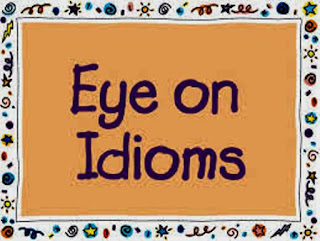Idioms make language more interesting
Idioms are the best way to express what we have to say, especially in more elegant, vibrant and economical manner. In most instances, they allow us to express complex ideas in a very simplified manner so that other people could understand and relate to them quickly.
Idioms also cause your mind to shift from the reality of your situation to the abstract thought. They keep your mind stimulated and focused. In fact, they provide an outlet for expressive communication and a way for different people to say the same thing but with different circumstantial reference.
It is actually impossible to avoid idiomatic language altogether and many expressions which seem you are using and understanding the language more like a native speaker would utilize, as the idiom makes one to easily understand what you want to say to others in few words.
The tough part about mastering idioms is that knowing all the individual words may not help you to understand the meaning of the phrase. For example, knowing the meanings of ace and hole may not help you to understand the meaning of “An ace in the hole” – a hidden strength or advantage.
What I feel is that the best way to learn idioms is probably to immerse you into popular culture to have more exposure to them, and ask a native speaker what they mean.
Different countries have different type of idioms depending upon the culture of the particular country. But there are certain common idioms of the same meaning but in different way.
For example, in Korean there is an expression along the lines of ‘someone else’s rice cake always looks bigger than yours.’ In English we would say ‘The grass is always greener on the other side of the fence.’ Both of these sayings neatly and memorably express the idea that something which you already have can be appealing just because it belongs to someone else.
There is very interesting idiom ‘thinking outside the box’ to mean not being constrained by conventional thinking and newspaper headlines, which are short but meaningful and relevant to whole of the news, are a good example.
To say in idiomatic language about the achievements made by someone is ‘Achievers never expose themselves, but their achievements expose them’.
There are also some funny idioms like ‘storm in a teacup’ means a lot of unnecessary anger and worry about a matter that is not important.
Frankly speaking, idioms have significance in day today life and sometime they are enjoyable way of using language and enjoyment helps us to learn more effectively.
I recollect when I said to one of my friend who used to be very active in using the idioms on every occasion, reacted to the idiom – Early to bed, early to rise, makes a man healthy, wealthy and wise. He said, these are old fashioned idioms, now the people have changed their life styles and changed it by replacing the word ‘wise’ to ‘status wise’.
In another incident, teacher was stunned to hear the statement of the boy that we should learn from the idioms from the other angles also. He commented on the old Punjabi idiom with new idea on asking to explain – chadhar vekh ke pair pasarne chahide han – stretch your feet according to the sheet. The boy said, Sir, one should sleep with stretched feet and know about the naked feet so that next day, he should work hard to purchase new chadhar (sheet).
‘Do and forget’ are the gone day’s idioms. In this materialistic world, ‘do and popularize’or ‘do before you die’ is the idiom with new concept, now a day so that others may follow you.
Looking at lists of idioms can be interesting, but my sincere advice is, don’t try to use them unless you are sure you know how to use them.
Wait for my book titled ‘Frankly Speaking…’






